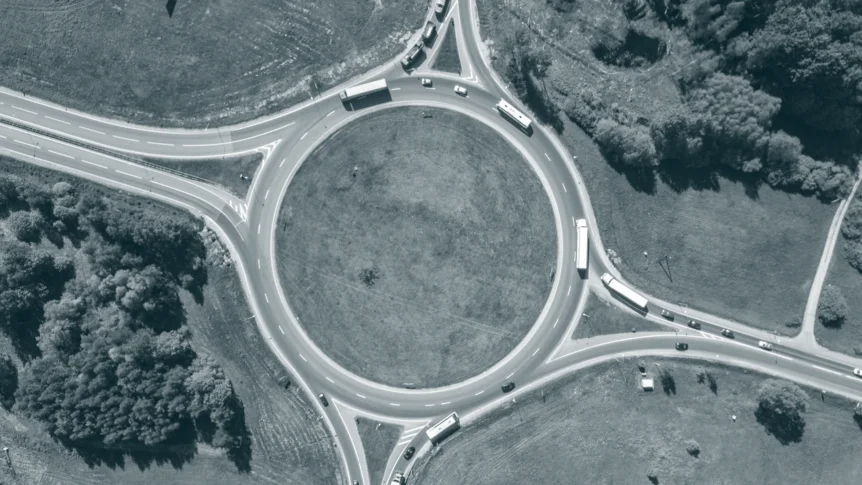In recent years, the circular economy has become a key concept in the construction sector. With an increasing focus on sustainability and environmental friendliness, the transition from a linear to a circular construction model plays a central role. However, this transition also brings with it important fiscal considerations, including VAT and transfer tax. In this blog, we highlight the impact of these taxes within the context of the circular construction economy.
What is the circular construction economy?
The circular construction economy focuses on maximizing the lifespan and reuse of building materials, minimizing waste and promoting sustainable construction methods. In contrast to the traditional linear model, which is characterized by ‘take, make, throw away’, the circular economy strives for a closed loop in which materials are continuously reused.
What are the benefits of the circular construction economy?
The transition to a circular construction economy offers significant environmental and economic benefits:
1. Cost savings
By reusing materials and optimizing recycling processes, companies can save significantly on raw materials and waste management costs.
2. Sustainability
The circular construction economy contributes to reducing CO2 emissions and preserving natural resources, which has a positive impact on the environment and the climate.
3. Innovation
The focus on circularity stimulates innovation within the construction sector, leading to new technologies and more efficient construction methods.
VAT and the circular construction economy
VAT (Value Added Tax) is an important factor for companies active in the circular construction economy. Within this context, there are some specific points of attention that relate to, among other things, reusable materials, circular construction services and intra-EU trade.
VAT refunds and VAT rates of reusable materials
When materials are reused or recycled, the VAT paid on the original purchase can in some cases be reclaimed. However, VAT refunds require accurate administration and compliance with specific rules. In addition, different VAT rates may apply, depending on the type of materials and their condition. For example, reused materials may be subject to a lower rate than new materials.
The right VAT rates when providing circular construction services
When providing circular construction services, such as dismantling, repair and installation of reclaimed materials, businesses need to apply the correct VAT rates. This can vary depending on the specific services and materials involved. To ensure fiscal correctness, it is essential to keep accurate records of which services and materials are subject to which rate. In addition, businesses need to stay up-to-date on potential changes in VAT legislation to ensure compliance and avoid potential penalties.
VAT rules for intra-EU trade
For businesses operating within the EU, special rules apply to VAT on cross-border transactions. This is particularly relevant for circular construction companies that import or export materials or services within the European Union. It is important to take into account different VAT rates and administrative obligations that may apply when crossing national borders within the EU, in order to remain compliant with regulations and avoid unnecessary costs.
Transfer tax and circular construction
Transfer tax is another important consideration in the circular construction economy, especially when buying and selling real estate and used building materials. This tax applies to real estate and reusable materials, among other things. When purchasing existing real estate that will be redeveloped or renovated using circular methods, transfer tax is due. The amount of this tax can depend on various factors, such as the type of property and the condition of the property. Although transfer tax is traditionally associated with real estate, it can also be relevant when purchasing large quantities of used building materials, depending on local regulations.
Tax benefits for sustainable redevelopment
It is important to understand local regulations, as rates and exemptions can vary from region to region. In addition, companies can benefit from tax benefits when purchasing real estate that is intended for sustainable redevelopment. Correctly applying transfer tax can result in significant cost savings and contribute to a more efficient use of resources in the circular economy.
Prepare for the fiscal implications of the circular construction economy
The circular construction economy is a promising development that can transform the construction sector into a more sustainable and efficient model. By understanding the fiscal implications in the field of VAT and transfer tax and by carefully complying with the regulations, companies can optimize their fiscal burden and make a significant contribution to a sustainable future.
Want to know how to prepare your (construction) company for the circular economy and the associated fiscal challenges? Contact our experts for a free consultation.
Do you wish to keep up with the latest VAT regulations?
Subscribe to our newsletter:

